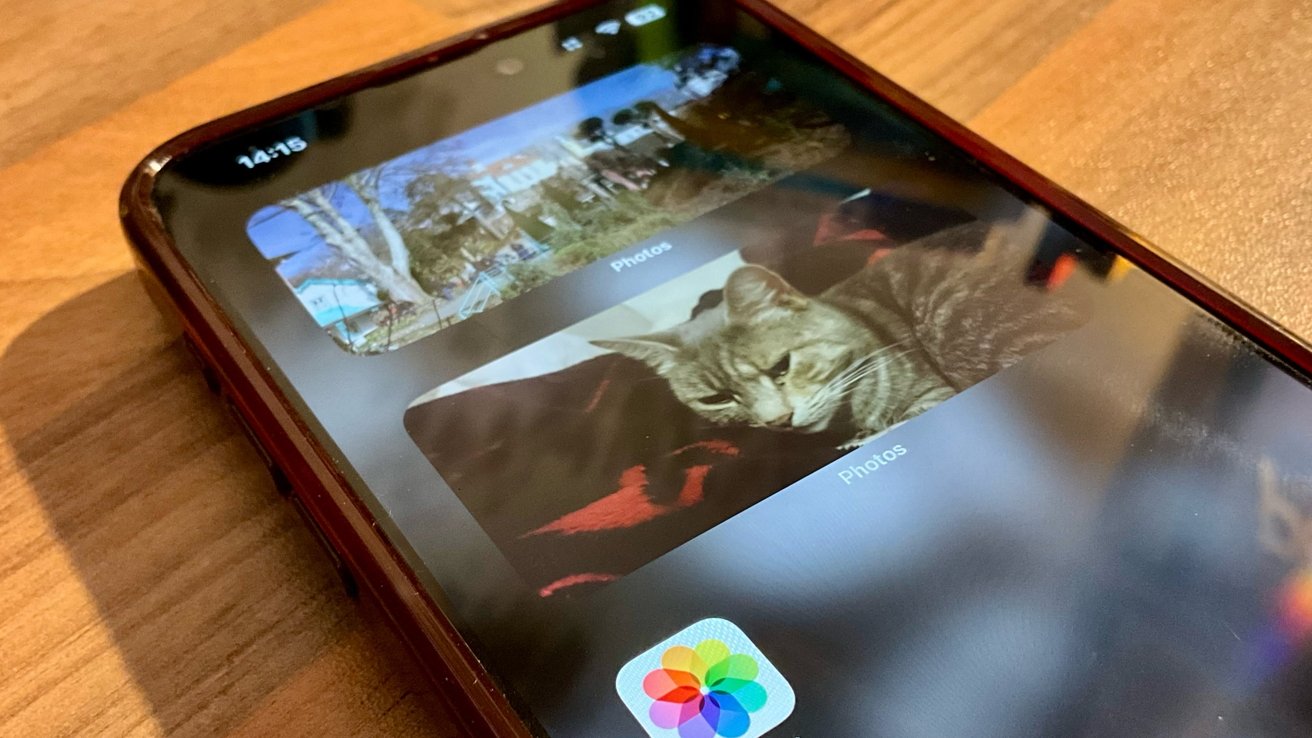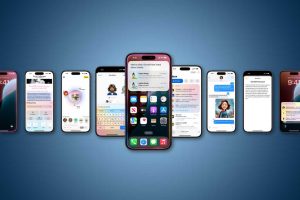
A TikTok trend makes an astounding claim that the iOS Photos widget displays who is reading your messages and may be looking back at your photos, and it is not based in reality at all.
Social media users often make posts about Apple products and features, either to teach followers or to warn them of potential issues. Sometimes, these involve claims that are just false.
One new trend is to accuse Apple of spying on users, in a way that doesn’t make sense for a variety of reasons. It’s apparently doing so via the Photos widget in iOS.
An example of this kind of video comes from TikTok user “Saturnasafather,” also known as Nate Michael Limon, who claims in a hard-to-hear 15-second clip that Apple “snitches out” whomever is looking at your photographs or reading your text messages. The clip continues, explaining that the Photos widget can show an image of that person.
This is, obviously, incredibly wrong.
The Photos widget displays images from a user’s Photos library, in one of two ways. You can set it to show images collected together in Memories and Featured photos, or you can set a specific album as the source of the images.
The Memories and Featured Photos could be considered somewhat random, as the Photos app can generate Memories automatically for the user. The memories can collect together images on a theme, such as scenes from a day out or an occasion.
Since the user doesn’t necessarily prompt for the creation of some Memories, as they can be made by the system, this could be perceived as being “random.” In turn, it can potentially show a face as the cover art for a Memory, and therefore show it in the widget.
There are no outside forces acting to generate a Memory or to force the Photos widget to display a specific person’s face.
Everything’s still private
The problem with the claim is that it relies a lot on Apple destroying all of its goodwill when it comes to privacy. Apple has beaten the drum for years that privacy is a human right, and it works with that notion in mind.
This takes the form of using encryption in many areas, performing on-device processing, and doing what it can to avoid actually coming into contact with user data at all. When it needs to have user data, it does so by taking as little information as possible, and further anonymizing and protecting it.
This is taken to a level where Apple can’t actually break its own security, even in situations where it could be considered a very useful thing to happen. For example, US security agencies like the FBI have repeatedly asked for Apple to unlock iPhones collected from suspects, but while Apple complied where it could, it simply couldn’t do what was asked.
Then there are the practical elements to consider in how such a system would work in the first place. How would it supposedly detect someone reading text messages from you from an Android device?
Outside of a tightly-controlled app platform where it can access data with ease, this is implausible.
Also, consider whether there’s any point to Apple “snitching” on its users. If Apple were capable of detecting when others read your messages, there is no reason for the company to tell you it happened, outside of read receipts.
If it did have a reason to do so, you’d expect it to be offered up as a more formal notification, not cryptically via a Photos widget of all things.
Given that it can’t freely give data to the FBI to solve a murder case, as well as its work to further and enshrine user privacy in its products and services, there’s no reason for Apple to do it.
Me, myself, and iPhone
The claim, once you think about it for more than a few seconds, is pretty stupid. However, that doesn’t stop it from spreading on social networks.
It has been repeatedly observed that social media influencers are using platforms to deliver hot takes about whatever topics they want. Often, they are sharing things they heard from elsewhere, and they don’t exactly try to offer evidence or apply any scientific rigor to it.
To the poster, the key thing is to get more views, and that means making lots of content. The more content that is produced, the more chance of one post being a massive success.
Successful posts can mean an increased following, and a better chance at earning revenue.
We’ve seen it in bigger waves before, such as the whole iOS 18 “update for cheaters” thing because people could hide apps on their iPhone. It was an outrageous claim that was easy for users to seize and redo in their own posts on the topic.
Due to the nature of social media and the need for ticking-over content, this is a problem that simply won’t go away, because it works.
In the case of Limon, the Photos widget video has garnered over 1.3 million views, by far his most popular video on TikTok. Under the monetization schemes of some platforms, that could be a few hundred dollars or more.
That means the fix to discourage this behavior has to come from users. But asking users to do their own research and to use more reputable sources is a tough sell.
After all, the next swipe could be far more entertaining. Even if it’s not true.




